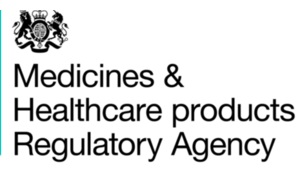-
21st Dec 2016, 02:58 PM
#1
Perhaps consider producing another DoH, Health Service Circular as per HSC 1998, 2002 and 2007 on Better Blood Transfusion. Resourcing for these was more successful as the documents were directed at Trust boards and came down to Pathology Managers and HTCs for review and accountability to implement:
Suggestions to include:
- Transfusion laboratory managers must report concerns with staffing levels and skill mix via a formal process to the Trust (via incident reporting/ HTC/ PBM committees).
- Staff must be encouraged to report minor as well as serious transfusion related incidents and events that may occur in both the clinical and laboratory areas, without censure.
- As the Transfusion lab provides both a diagnostic and therapeutic service, in an increasingly changing environment, the training needs are more stringent, and this should be reflected in staffing requirements .
- The laboratory must work towards meeting professional educational, training and knowledge requirements as described in UKTLC standards and all other BCSH guidelines, as well as maintaining compliance with the BSQR, EU GMP and ISO 15189.
Would really appreciate ideas from others about this. Do you think it is achievable/ realistic etc??
Many thanks
Last edited by Rashmi; 21st Dec 2016 at 02:59 PM.
Reason: correction
-
11th Jan 2017, 10:24 AM
#2
The MHRA promote an open reporting culture as an essential pillar of an effective quality system and would be very concerned if staff were penalised for bringing issues to the fore.
If such events arise, can I suggest you advise via the NHS Whistle blowers email (enquiries@wbhelpline.org.uk) in the first instance. If that fails you could report to the MHRA as a whistle blower by emailing MHRA customer services (info@mhra.gsi.gov.uk) and providing details. Whistle Blower communications with the MHRA are treated in complete confidentiality.
-
11th Jan 2017, 01:46 PM
#3
Thank you for your reply.
Having discussed this with folks, the opinion is that staff still feel unsafe and lack confidence to whistle blow, regardless of some excellent hospital policies around, and the presumed confidentiality of the process,and any formal means of reporting concerns. It is very easy to trace back to the whistle blower or to assume (correctly or not) the source, and for repercussions on the blood bank manager and team.
Whistle blowing is also a very reactive process rather than building this within the QMS framework.
Many thanks
-
15th Feb 2017, 02:33 PM
#4
On a positive note, I gather that 90% of NHS hospitals have now appointed Freedom to speak up guardians. I personally feel more comfortable in being able to discuss any concerns at work with someone in this neutral post; it's a good move, and lab managers should try and get to know their local guardian.
 Posting Permissions
Posting Permissions
- You may not post new threads
- You may not post replies
- You may not post attachments
- You may not edit your posts
-
Forum Rules





